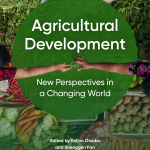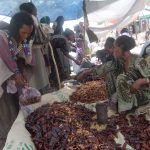Exchange rate policies can have important implications on incentives for export agriculture. However, their effects are often not well understood. We study the issue of foreign exchange controls and pricing in the value chain for Ethiopia's coffee—its most important export crop. Relying on unique pricing and cost data, we find that coffee exporters are willing […]
50 Years of CGIAR Innovations
For 50 years CGIAR innovations have driven transformations and propelled cutting-edge research that advance knowledge, policies, and human development. Read more.
Agricultural development: New perspectives in a changing world
Agricultural Development: New Perspectives in a Changing World is the first comprehensive exploration of key emerging issues facing developing-country agriculture today, from rapid urbanization to rural transformation to climate change. In this four-part volume, top experts offer the latest research in the field of agricultural development. Using new lenses to examine today’s biggest challenges, contributors […]
Variation in women’s attitudes toward intimate partner violence across the rural-urban continuum in Ethiopia
ESSP Working Paper 155 by Mulubrhan Amare, Channing Arndt, Zhe Guo, and Greg Seymour. Abstract: Little is known about the impacts of urbanization on women’s attitudes toward intimate partner violence (IPV). The scarcity of empirical studies on this relationship can be partly attributed to the lack of an objective measure of urbanization levels. In this […]
An evolving paradigm of agricultural mechanization development: How much can Africa learn from Asia?
Agricultural mechanization in Africa south of the Sahara — especially for small farms and businesses — requires a new paradigm to meet the needs of the continent’s evolving farming systems. Can Asia, with its recent success in adopting mechanization, offer a model for Africa? An Evolving Paradigm of Agricultural Mechanization Development analyzes the experiences of […]
- « Previous Page
- 1
- …
- 9
- 10
- 11
- 12
- 13
- …
- 29
- Next Page »




